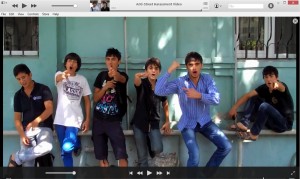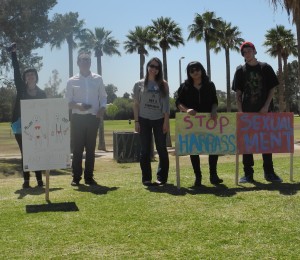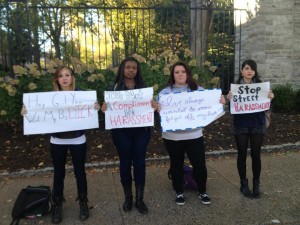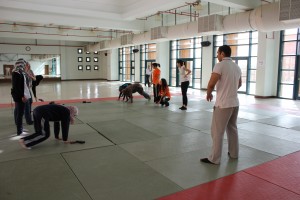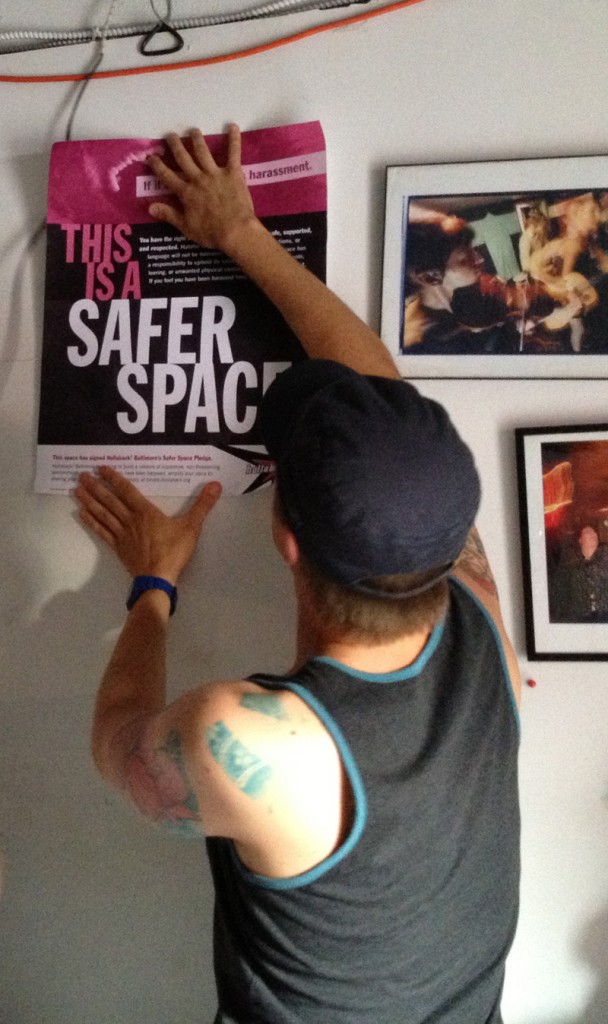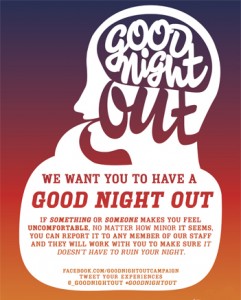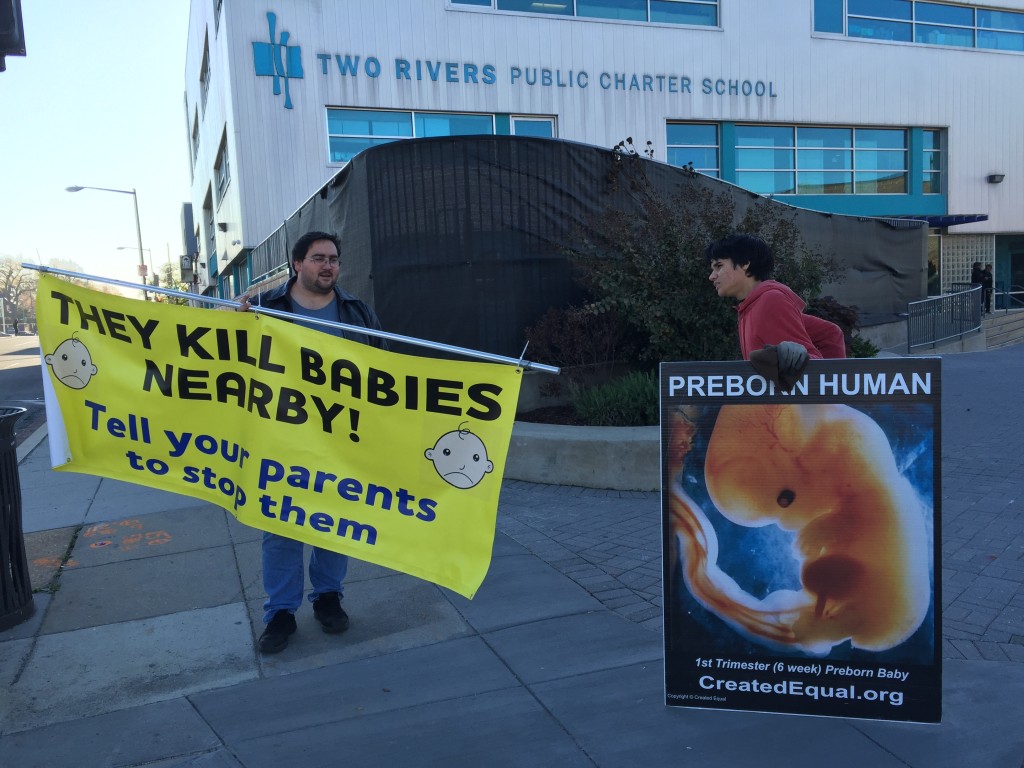
“School leaders at a public charter school in Northeast Washington filed a lawsuit [today] against anti-abortion protesters who they say are harassing students in their efforts to stop construction of a Planned Parenthood facility next door.
Two Rivers Public Charter School alleges in a complaint filed in D.C. Superior Court that the protesters have engaged in “extreme and outrageous conduct” during the past several months, targeting school children as young as 3 years old with gruesome images of aborted fetuses and messages about the “murder facility” going in next to their school. The school is asking the court to order protesters not to talk to the schoolchildren or approach them outside the school.” Read more in the Washington Post.
The DC Mayor’s office reached out yesterday to SSH and other relevant groups to see if we would write a letter in support of this lawsuit. Our board of directors unanimously agreed!
Here it is:
“Stop Street Harassment (SSH) is a nonprofit organization dedicated to documenting and ending gender-based street harassment worldwide. We are based in Reston, Virginia, and do work locally, nationally and internationally.
Locally, one of our initiatives is partnering with WMATA and Collective Action for Safe Spaces on an anti-harassment transit campaign in the Washington Metropolitan Region. We are proud to be part of that effort because we want everyone in the region to feel safe on the Metro trains and buses.
We also want people, including children, to feel safe in other public spaces. For that reason, we are dismayed that people protesting the construction of a Planned Parenthood health center on 4th Street are targeting elementary school children at Two Rivers Public Charter School next door, including with signs reading, “They kill babies nearby! Tell your parents to stop them.”
We believe that street harassment is a human rights violation because it denies harassed persons equal access to public spaces by making them feel unsafe and unwelcome there. This is exactly what the anti-Planned Parenthood protesters are doing. Elementary school children should have the right to go to and from school without feeling unsafe and unwelcome — and without feeling threatened and intimidated — but the Planned Parenthood protesters are denying them that right each time they protest and target them.
We support both the Two Rivers’ complaint and request for preliminary and permanent injunctive relief and the Mayor’s efforts to protect the students at the school and Planned Parenthood’s work in Washington, D.C. from this systematic harassment and intimidation.
Sincerely,
The Stop Street Harassment Board of Directors”

